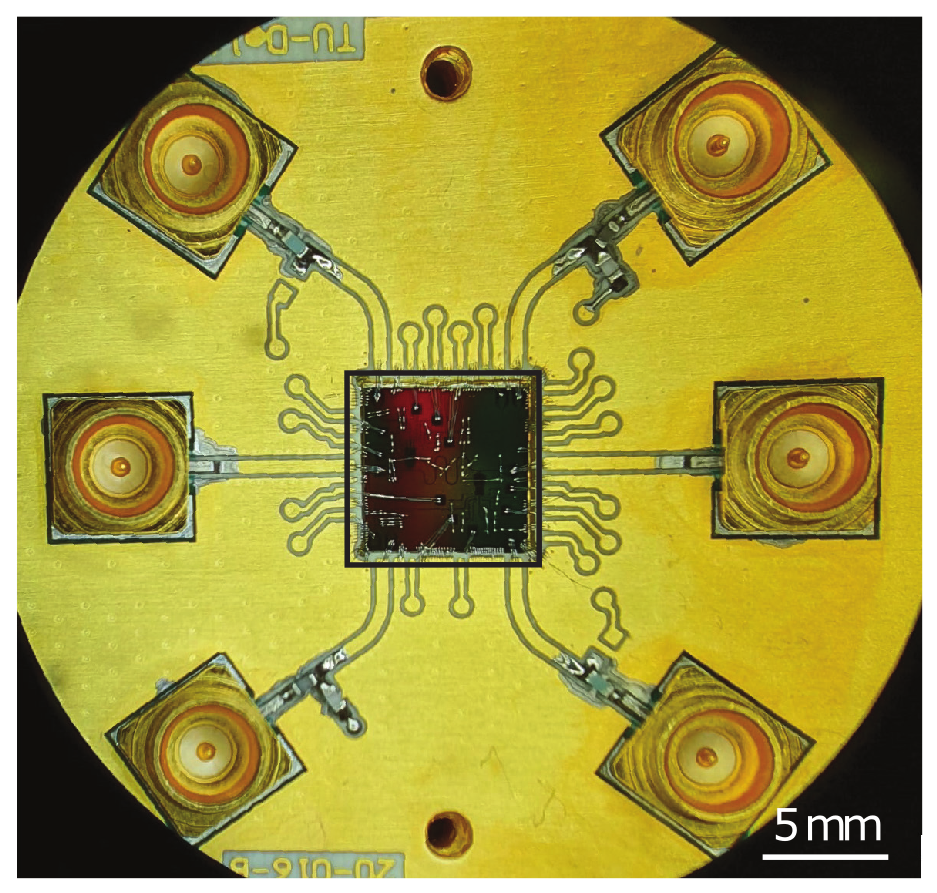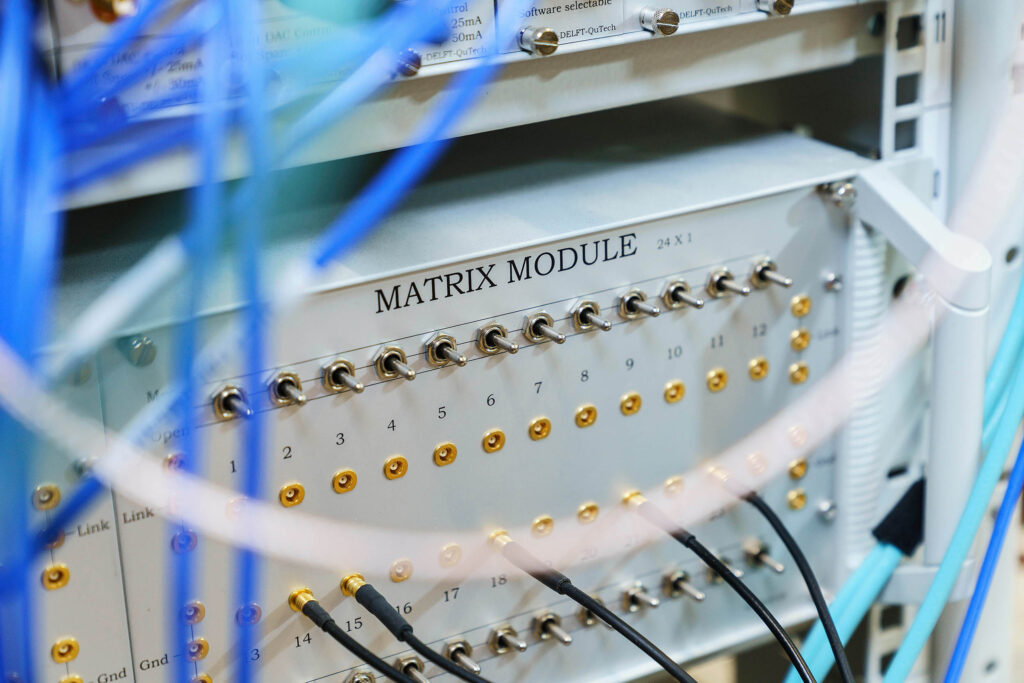Quantum Chips with No Limits
This project aims to implement long-distance entanglement between vastly dissimilar platforms across multiple chiplets using a novel flip-chip architecture in superconducting hybrid circuits. By placing qubits on separate chips and enabling communication via long-distance couplers on an additional intermediary chip, we create a versatile platform for exploring quantum entanglement over spatially separated systems beyond the limits of a single quantum chip.
In this project, we are collaboration with the Chatterjee lab.
This project is part of the NWO Summit quantum limits consortium.
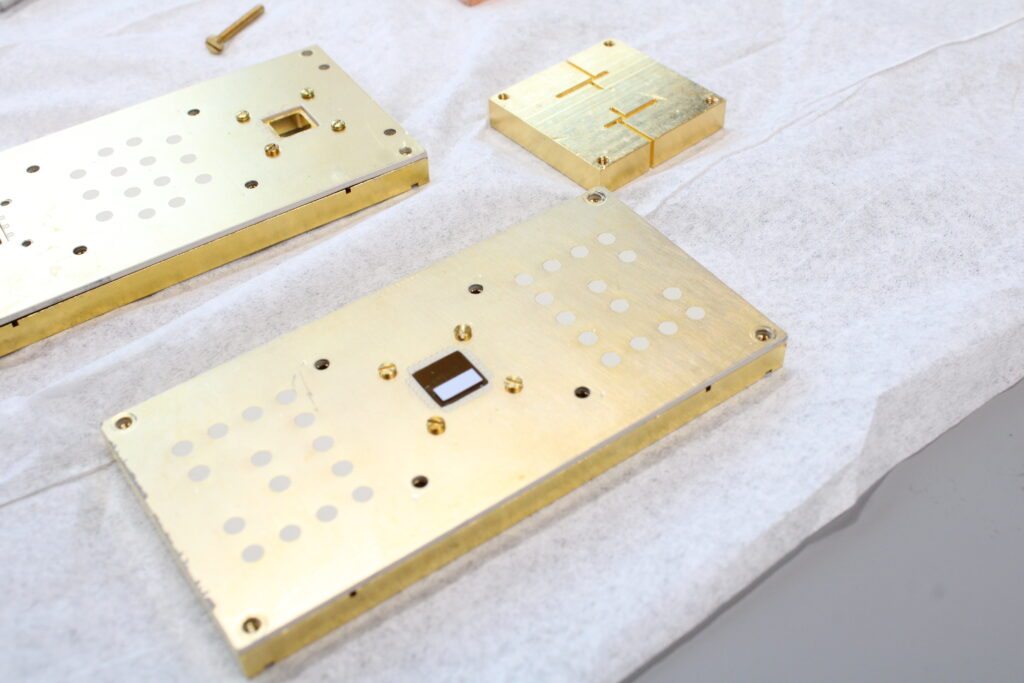
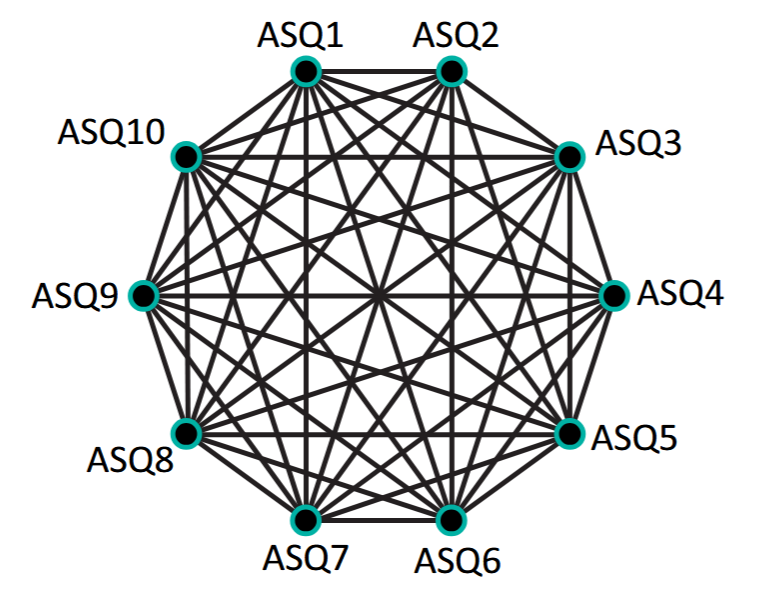
A scalable architecture for Andreev Spin Qubits
In the rapidly evolving field of quantum computation, Andreev spin qubits (ASQs) have emerged as a promising hybrid solution, combining the strengths of superconducting and semiconducting qubit systems. Our laboratory has been at the forefront, pioneering the first-ever two-qubit coupling between distant ASQs. Despite these advances, a significant knowledge gap remains, particularly in developing scalable architectures that support extensive connectivity among qubits. By realizing a scalable, all-to-all connected network of ASQs, we aim to unlock new possibilities in quantum computation and simulation, paving the way for quantum technologies that could address some of the most pressing computational challenges in the world.
This project is supported by NWO through the Talent Programme VIDI: VI.Vidi.233.031. The project started in March 2025.
Towards large-scale fluxonium qubit devices
The main goal of the project is to enable multi-qubit fluxonium quantum devices with record-low error rates which will be a corner stone in moving quantum computing from academic labs towards real world applications. In this project, we will:
- Develop a detailed architecture for large-scale multi-qubit devices.
- Convert the high-level architecture to practical device designs
- Fabricate high performance fluxonium quantum devices
- Experimental demonstrate high-fidelity single-qubit and two-qubit operations on the fabricated devices
This project is a collaboration between our lab and the local start-up Quantware, who has an expertise in designing and fabricating large scale transmon-based quantum devices. This expertise will be used to fabricate the architecture around the fluxonium qubits.
This project is financially supported by Holland High Tech (TKI) project 00PPS334. The project start on June 1st 2023 and will run for 4 years.
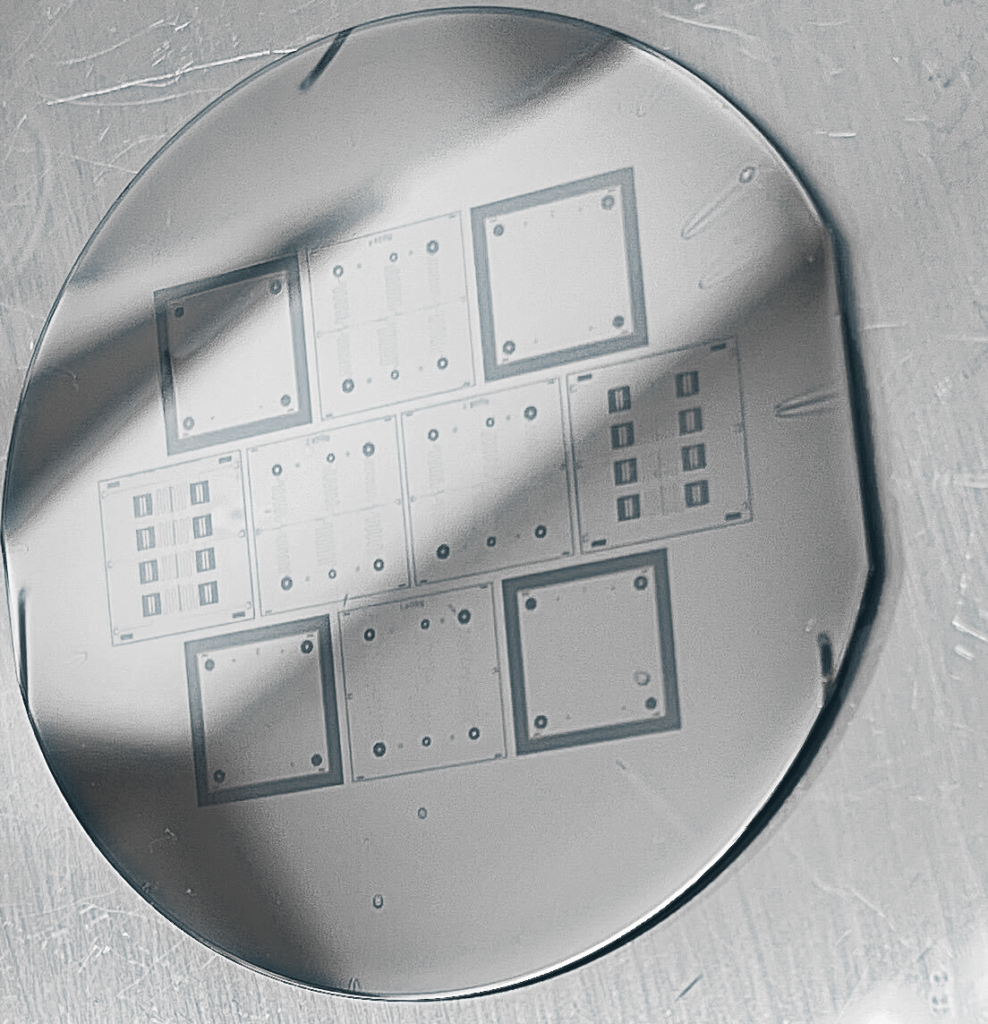
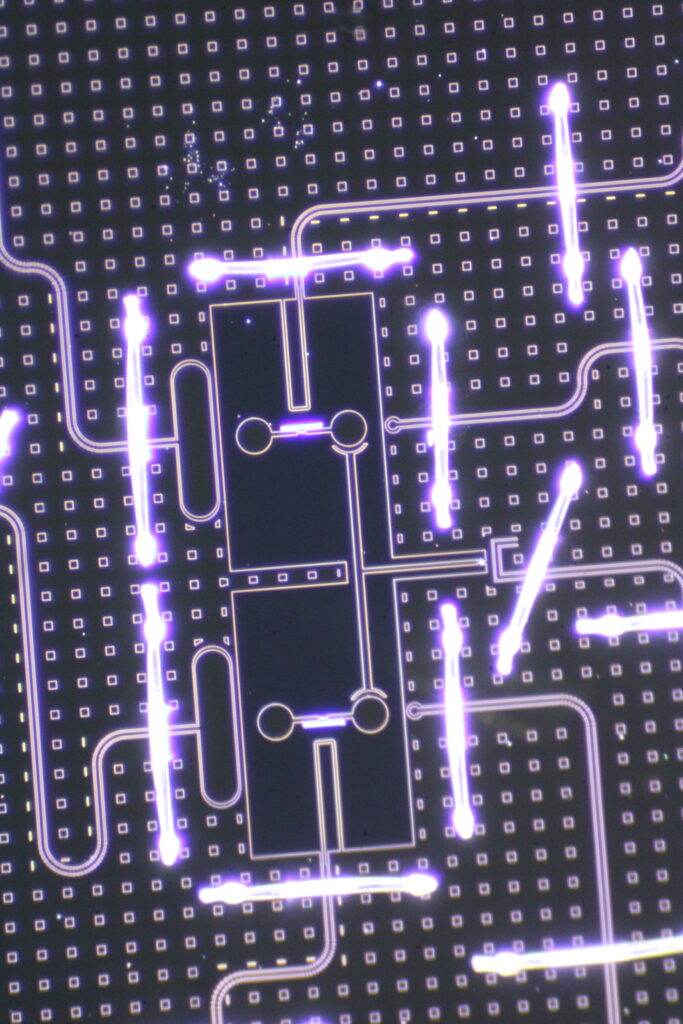
Parity measurements of fluxonium qubits.
In the next-generation of quantum computers, ‘qubits’ play a role similar to bits in our present-day computers. Among these, the ‘fluxonium qubit’ is a novel qubit type and it stands out with its potential for improving the quality of quantum computers. However, there’s a hurdle: a crucial step for large-scale quantum computing is to enable a process akin to making the qubits “compare notes” and make sure that they share the correct quantum information – we call that ‘parity measurements’. Implementing these parity measurements for fluxonium qubits is an outstanding challenge that very much remains an open scientific question. Our team is on a mission to pioneer this ‘note-comparing’ process for the novel type of qubits that we work on. Building on our past successes, we are working to make these parity checks more reliable than what was achieved with conventional qubits. By achieving this, we will be enhancing quantum computing’s power, opening up new avenues for scientific advancements in various fields.
This project is financially supported by the Dutch Research Council (NWO) Open Competition Science OCENW.M.23. The project started on October 1st 2024 and will run for 4 year.
QuKiT
Quantum computing promises to enable computational power beyond the reach of our current computers with applications in chemistry, medicine and beyond. By some estimates, quantum computing will create a market value of over 455 billion EUR in the next few decades. However, these optimistic projections of the quantum market rely on a presumed ability to perform quantum computations in a fault-tolerant manner. In other words, quantum computing will only reach its true potential if the quantum community develops hardware technology that is good enough to deal with errors that are intrinsic to any quantum technology. Currently, such hardware does not exist and mainstream qubit technologies are limited by different noise sources depending on the specific
implementation. In our project QuKiT we will integrate topologically protected systems with superconducting circuits to develop a new hybrid transmon qubit. Our innovative approach will leverage on the sophisticated qubit control techniques already developed for conventional transmon qubits, while eliminating the most dominant sources of qubit errors. This will enable a path towards scalable quantum computers with record low error rates, allowing for useful quantum computing to be achieved with a few thousand qubits, rather than a few million
This project is funded by a EU EIC Pathfinder grant. The consortium is led by QuTech, with partners at the IOM Materials Foundry at the National Research Council of Italy, the Institute of Science and Technology Austria (ISTA), Energiatudomanyi Kutatokozpont, the Spanish National Research Council, the University of Augsburg and Orange Quantum Systems. The project start on October 1st 2023 and will run for 4 years.
